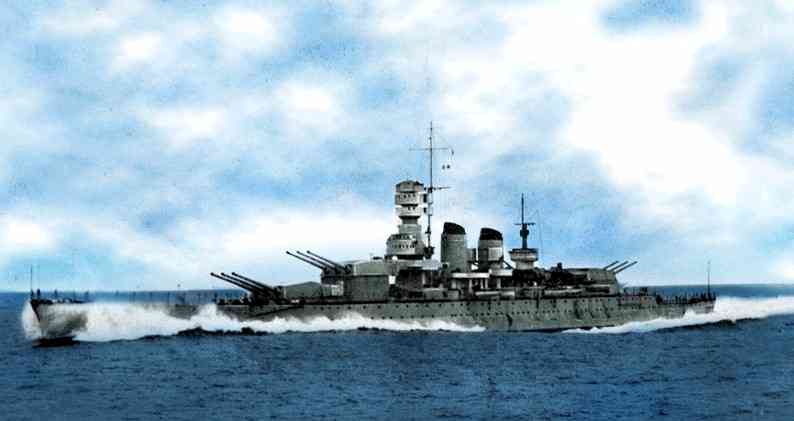9 September 1943

It was 9th September 1943. Like every evening, my young grandmother sat in front of the radio. The shutters were closed tight, the volume at minimum. It was forbidden to listen to Radio London, but it was the only way to get news of the war and, who knows, of its end. Her husband was at war as a sailor and letters were slow to arrive. Her parents had died and her only close relative, her brother, was also at the front, but had been missing for months. They lived together, she and her sister-in-law, in the small apartment that her father-in-law had struggled to pay for.
That evening, the little one in her belly was kicking more than usual. It wouldn't be long now and, in his last letter, my grandfather hadn't hidden his desire to return home. All of this, in the darkness of those years, provided him with the light to keep going.
The radio struggled to tune in. There was interference and they could hear many planes overhead. The volume had to stay low and the lights at minimum. Finally the white noise transformed into a distant voice, and her sister-in-law also came closer to listen to the latest news.
"Attention, important news from the front. The ship Italia - formerly Littorio - was sunk this afternoon. No survivors. I repeat. No survivors".
A sharp pain. Darkness. A thud. It was his ship. He was dead. She was alone. With a little girl in her womb who wanted nothing more than to come into the world. And her beloved, young and handsome husband was no more. How many other things would life have to take from her? How much suffering? Why?
Her sister-in-law tried to revive her, in vain. Suddenly, the radio interrupted the news for a new announcement: "Correction: the ship Roma has been sunk - there are perhaps few survivors - the ship Italia was hit and severely damaged, but managed to reach safety. No casualties reported".
She opened her eyes. Perhaps, this time, things hadn't gone so badly. For a moment the joy of the news was overshadowed by the awareness that on the ship Roma there were many of their friends. But he was alive. And this, for her, was all that mattered. She stood up, with a small bruise on her forehead, and felt another reassuring kick.
It was 9th September 1943. The sea was magnificent. The island of Asinara was an earthly paradise and my grandfather's young eyes fantasized: "one day we'll come here, my family and I, to visit these places. Free". And while his imagination wandered, enemy planes began to fly menacingly over their fleet. He understood immediately and ran to his commander. From there, pandemonium.
Agitation, noise, ears covered. Waves of heat, fragmented by minutes of disturbing silence. Many things happened, but when you're trying to save your life, you move more by instinct than reason and memories tend to become confused. Only the orders, because in war you follow orders, remain objective and absolute.
The bombs were falling, the anti-aircraft guns couldn't do anything. The planes were too high and the bombs, dropped from 5000 meters altitude, were too fast. Some ended up in the water, some produced non-fatal damage but the ship Roma, their sister ship, split open at the second hit. The young sailor who dreamed of returning to his wife and daughter could do nothing but watch, continuing to follow orders and securing his own ship. Yet they all stopped and clearly saw what was happening. The bomb that hit the ship Roma produced such a blaze that it deformed the hull and many, very many died burned alive, before their eyes. But two of his friends didn't. Disfigured by burns, they threw themselves into the sea. Nothing could be done. They were too severely injured and no one could abandon their own ship. They screamed my grandfather's name, repeatedly, begging for help. The orders were clear and their conditions too severe. He watched them die like that, before his eyes. He never forgot and those screams haunted him for the rest of his life.
They managed to escape to safety. A few weeks later, he received a letter from my grandmother. The little girl had been born and was doing well. Because of what had happened and thanks to the birth of the little girl, he managed to obtain leave to return home.
However, it took time and, while traveling, he couldn't receive other communications.
As soon as he arrived in town, instinctively, he ran. The joy, enthusiasm, happiness of embracing his wife again and meeting his daughter were impossible to contain. The boots were heavy and uncomfortable, but he didn’t feel a thing. He was out of breath, but it didn’t matter. He had to run home. A casa sua. The war, in that moment, was far away. Mind and body, for the first time in so long, were in the same place. In the place where they should have remained. Free. Together.
Suddenly he met an acquaintance and greeted him. He seemed almost annoyed but, buoyed by the beautiful feeling, he stopped to exchange a few words.
"Condolences for your daughter. You didn't deserve this, with everything you've been through".
He had to sit down. A sharp pain. Darkness. A thud.
My grandmother's letter, with the news, was still traveling. His daughter, his little one, the one he thought about while his friends' ship was sinking, the one who gave him strength to go on in the worst moments, was no more. He would never hold her in his arms. He wept.
As soon as he managed to get back up, he ran to my grandmother and embraced her.
They remained like that - embraced and in silence - for an indefinite time.